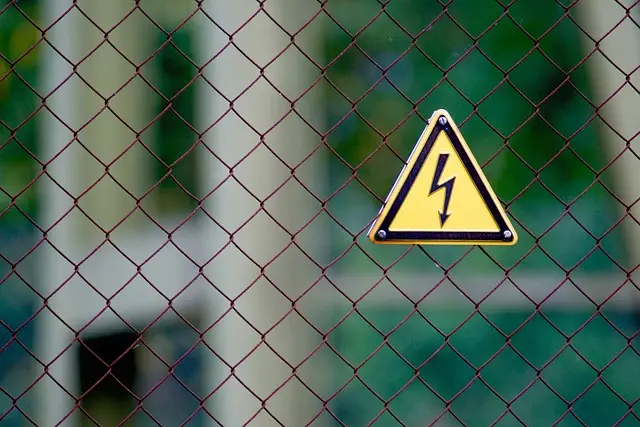Kratom, a plant with anti-inflammatory properties due to its alkaloids mitragynine and 7-hydroxymitragynine, is a subject of interest for managing pain and inflammation. In Louisiana, kratom's legal status is nuanced; while it is not federally classified as a controlled substance, its legality is under review by the DEA at the federal level. At the state level, Louisiana has not enacted a complete ban on kratom, but users should be aware that its status could change with legislative updates. Consumers in Louisiana should verify the current legal status of kratom through local authorities or legal resources to ensure they are following the latest state laws. The legality of kratom in Louisiana is complex and subject to change, making it crucial for individuals to stay informed about its legal standing, as it may not align with neighboring states or the federal stance on kratom's status. Is kratom legal in louisiana? This question requires consistent checking for updates due to the dynamic nature of legislative changes affecting its use and sale within the state.
Kratom, a tropical tree native to Southeast Asia, has garnered attention for its potential anti-inflammatory properties and its complex relationship with legal frameworks, particularly in Louisiana. This article delves into the multifaceted role of kratom in reducing inflammation, shedding light on its chemical makeup and the mechanisms behind its effects. With a focus on its legal status—a key concern for residents of Louisiana who are ‘is kratom legal in louisiana’—this exploration aims to clarify the regulatory environment surrounding kratom use. Readers will gain insight into how this botanical substance fits within the broader context of natural remedies for inflammation, all while navigating the evolving legal landscape that defines its accessibility and acceptance.
- Exploring Kratom's Role in Inflammation Reduction and Its Legal Status in Louisiana
- Understanding Kratom's Chemical Components and Anti-Inflammatory Effects
- Navigating the Legal Landscape of Kratom Use in Louisiana: What You Need to Know
Exploring Kratom's Role in Inflammation Reduction and Its Legal Status in Louisiana

Kratom, a plant native to Southeast Asia, has garnered attention for its potential anti-inflammatory properties. Alkaloids present in kratom leaves, primarily mitragynine and 7-hydroxymitragynine, are believed to contribute to its anti-inflammatory effects by modulating immune responses and reducing the production of pro-inflammatory cytokines. Studies suggest that these compounds can help alleviate inflammation in various conditions, offering a potential natural alternative for managing pain and inflammation. However, while research continues to elucidate its mechanisms, users interested in exploring kratom’s benefits for inflammation reduction should consider its legal status.
In the United States, kratom’s legal status varies by state, with some regions imposing strict regulations or outright bans. In Louisiana, the legal landscape has seen changes over time. As of the current understanding, kratom is not explicitly scheduled as a controlled substance at the federal level under the Controlled Substances Act; however, it falls under the DEA’s Drug Enforcement Administration’s jurisdiction and remains a topic of regulatory discussion. At the state level, Louisiana has not banned kratom outright, but it is essential for consumers to stay informed as legislation can evolve. Those considering using kratom should always verify the current legal status with local authorities or legal resources to ensure compliance with state laws. This due diligence is crucial for anyone looking to incorporate kratom into their health regimen within the state of Louisiana, where its legality is subject to change and may differ from neighboring states or the federal position.
Understanding Kratom's Chemical Components and Anti-Inflammatory Effects

Mitragyna speciosa, commonly known as kratom, has garnered attention for its potential therapeutic properties, including its anti-inflammatory effects. The plant’s leaves contain a complex array of chemical compounds, primarily alkaloids such as mitragynine and 7-hydroxymitragynine, which are thought to contribute to kratom’s biological activities. These alkaloids interact with the body’s opioid receptors, potentially offering pain relief and anti-inflammatory benefits. Research indicates that these compounds may inhibit certain inflammatory cytokines and enzymes, which are key drivers in the inflammatory response. This suggests that kratom could play a role in reducing inflammation associated with various conditions.
The legality of kratom varies across different states within the United States, with its status in Louisiana being subject to legal scrutiny and regulation. As of the current understanding, is kratom legal in Louisiana? The answer is nuanced, as it is currently listed as a Schedule I controlled substance under Louisiana law. However, this classification is under continuous review and debate due to the emerging scientific data on its efficacy and safety. Consumers interested in the legal status of kratom in their area should consult the most recent legislation or legal advisories pertaining to kratom, as laws are subject to change based on ongoing legislative developments and judicial decisions.
Navigating the Legal Landscape of Kratom Use in Louisiana: What You Need to Know

Mitragyna speciosa, commonly known as kratom, has gained attention for its potential effects on inflammation reduction and pain management. As interest in kratom continues to rise, it’s imperative for users to understand the legal status of this substance within their jurisdiction. In Louisiana, the legal landscape regarding kratom is subject to evolving legislation. As of the current knowledge cutoff, kratom is legal in Louisiana, but its status can be influenced by state and federal regulations. Users should be aware that the state has not explicitly banned kratom; however, it falls under the analog act, which means products containing kratom are regulated similarly to controlled substances. This classification places certain restrictions on the sale and distribution of kratom-containing products, requiring vendors to adhere to specific guidelines. It’s crucial for consumers to stay informed about local laws, as state legislatures can introduce new measures that could alter the legal standing of kratom. Always refer to the most current legal texts or consult with a legal expert to confirm the status of kratom in Louisiana, ensuring compliance and safety when considering its use.
Kratom, a botanical substance derived from the Mitragyna speciosa tree, has garnered attention for its potential anti-inflammatory properties. This article has shed light on how kratom might play a role in inflammation reduction and provided clarity on its legal status in Louisiana, addressing concerns such as “Is kratom legal in Louisiana?” While the chemical components within kratom, notably alkaloids like mitragynine and 7-hydroxymitragynine, have been shown to exert anti-inflammatory effects, it is crucial for individuals to stay informed about the evolving legal landscape surrounding its use. Prospective users should be aware that while kratom may be legally accessible in Louisiana, regulations can vary, and its legality is subject to change at both state and federal levels. This article aims to serve as a reliable resource for anyone interested in exploring the potential health benefits of kratom while navigating its legal use within the state.






